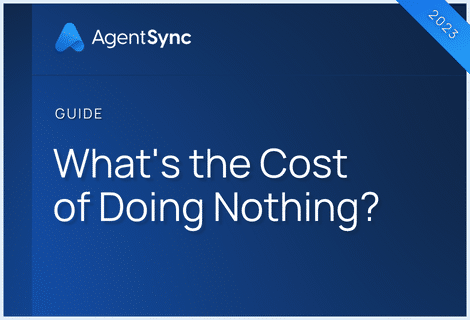

Each and every insurance carrier, agency, and brokerage runs just a little bit differently. One thing they all have in common is the necessity of producer licensing and compliance. But how they choose to tackle it can differ greatly between each organization.
In a recent (non-scientific) poll posed to members of the SILA community, the vast majority of agencies reported that licensing and compliance duties fall under their compliance departments. A few answered that these duties fall to the legal team, or the operations team. And even fewer reported the duties falling to sales and marketing.
Given these four options, we want to discuss the pros and cons of each one with the hope of providing you with some food for thought on the placement of this vital agency function.
When producer licensing falls under the compliance team
It makes sense: The staff tasked with overseeing producer licensing compliance report into the compliance team. This is quite possibly the most logical fit, and probably why most respondents indicated this is where the duties fall in their organization.
The compliance team is responsible for much more than just producer licensing, of course. They oversee the entire organization’s adherence to all applicable laws and regulations – from HIPAA to OSHA. They ensure compliance with minimum wage requirements, non-discrimination, and labor laws.
The upside of this team owning the producer licensing compliance responsibilities is that they are the compliance experts, after all. This team cares deeply about following the rules and protecting the company from liability.
On the other hand, with so much compliance to monitor, this team may not be producer licensing compliance specialists. With how tricky (and how numerous) the laws governing producer licensing are, it can be difficult to stay on top of everything unless there is a fully dedicated expert, or team of experts, focusing solely on this one component of compliance.
When producer licensing falls under the operations team
In some cases “operations” is the group that oversees the “compliance team” which many people say is responsible for producer licensing at their company. If this is the case, it’s kind of a twofer because the compliance team (see above) is also part of the operations team.
Setting that possibility aside, some organizations report the duties of producer licensing compliance to simply fall under general operations. One advantage of this is that the operations team are likely to be very operationally disciplined, and operationally efficient.

They’re probably masters of logistics and coordination. They have to be, to keep all the trains on the track across the company. In that way, an operations team may be well-equipped to manage the complex process of producer licensing. The operations team also has a good bird’s eye view of the entire company and how each piece fits together. This can also be advantageous when dealing with producer licensing compliance.
On the flip side, similar to the downside of the compliance team, operations is an enormous job. If the same people are responsible for every large and small detail of the business, it’s hard to expect them to keep fully on top of producer licensing and its ever-changing laws.
There’s no doubt many companies house producer licensing compliance within their ops team, just as they do within their larger compliance team. And overall, it’s not a bad strategy, per se. But it may prove difficult to maintain, if the team is overtasked or understaffed, or if the team doesn’t include a producer licensing specialist with a sole focus on the matter.
When producer licensing falls under the legal team
If there’s one thing we know about lawyers, it’s that they like rules. They may also know a thing or two about how the government works. So, placing the duties of keeping track of the rules governing producer licensing within this team makes sense – particularly if the organization has a legal team but doesn’t have a separate team for regulatory compliance.
At its best, a corporate legal team should be highly concerned with ensuring each employee, or any agent or partner of the company for that matter, is complying with all laws and regulations. In reality, the legal team may find it too tedious to monitor the status of every producer’s license at all times. We’re not saying your legal team is intentionally breaking the law! It’s just hard to imagine busy lawyers who do everything from battling intellectual property disputes, to drafting contracts, to litigating cases in court having the bandwidth to monitor tens, hundreds, or even thousands of individual producers’ license statuses.
When producer licensing falls under the sales/marketing team
Of all the places producer licensing responsibilities might fall, this one is the least common and also makes the least sense. It’s a bit like a fox guarding the hen house when you place the producers (whose job is to get selling quickly, and generate revenue) in charge of ensuring their own licensing is in order. By the nature of the job, producers have a financial incentive to push the envelope of when, where, what, and how they should be selling.
Particularly while in growth mode, an agency or MGA/MGU that places producer licensing under the sales team is effectively relying on sales managers to police their teams’ license status. While every company wants to believe its employees will always do the right thing under all circumstances, there are plenty of examples of when this “honor system” has failed.
Even assuming no malice, the sales and marketing functions of an insurance agency are busy with their own priorities and are not, nor should they be expected to be, experts in managing compliance.
The universal truths of managing producer licensing compliance
Regardless of which team takes on the responsibility for managing producer licensing and compliance, three things are always true:
- Producer licensing is complex and ever-changing
- It’s not going anywhere, or getting any simpler
- There are systems and tools that can relieve most of the burden
Even the most buttoned-up teams have their work cut out for them when tasked with ensuring producer compliance. With the complexity of licensing requirements across states and lines of authority, it’s a wonder anyone can do it at all without heavy assistance from modern technology.
So, regardless of whether your producer licensing compliance and monitoring duties fall to your compliance team, operations team, legal team, or sales/marketing team, we recommend checking into producer licensing management systems and tools to automate the process and take a load off. For instance, that’s something we do at AgentSync. Hint hint. OK, fine, we’re not going to be subtle: See how AgentSync makes producer license compliance easier.

